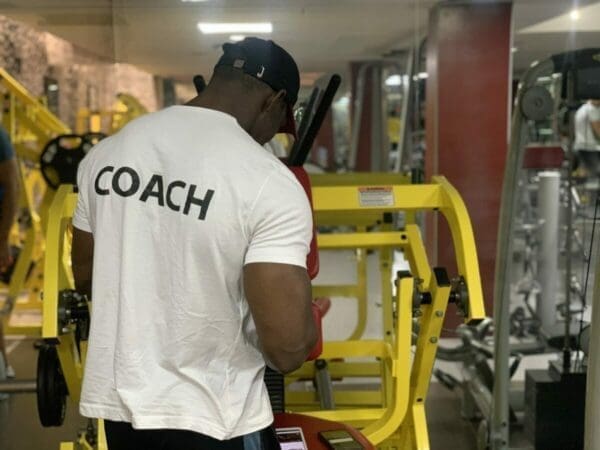‘I Have a Voice!’ Exclaims Firth’s Duke of York.
Rewind to the beginning of The King’s Speech, and the announcement is quite different:
‘I stammer. No one can fix it’. And perhaps that is the point. The Duke is right. His stammer cannot be ‘fixed’ by ‘anyone’. This is where performance coaching comes in.
As managers, we have learned to tell and to advise. We are paid to be right, much the same as were the experts ‘fixing’ the Duke’s stammer in the opening scenes of The King’s Speech. But here’s the thing. While there is absolutely a place to tell, to manage, and to be an expert, there is also a (much bigger) place for something different. We learn that the Duke has endured a life of ‘tell’ and we see the resulting frustration, as a doctor begins thrusting marbles into his mouth.
The danger with ‘telling’ is that we might unwittingly be giving yesterday’s solutions to today’s problems. In ancient Greece, marbles were a known cure for stammers. Times change, managerial wisdom does not always catch up. Who can therefore blame the exhausted Duke for his simple plea to his wife of ‘promise me no more’? How many people in your own organisation might be thinking this, if not actually saying it?
Logue’s Coaching Approach
From this point onwards, we see the Duke being thrust in and out of two separate worlds; the old one of telling that he knows so well, and the new one of the consultation room belonging to Lionel Logue (Geoffrey Rush) which proves quite a revelation.
Duke: ‘You’re awfully sure of yourself’.
Logue: ‘I’m as sure as anyone who wants to be cured’
Logue is found by the Duchess. He does not call himself a coach, but ‘coach’ he does. And that is perhaps the first truth about performance coaching. It’s about the ‘how’. Qualifications are helpful of course; they show that someone has taken time and effort to learn and there’s a degree of initial safety and trust that goes with that. That’s probably as far as it goes. In my experience, qualifications alone are not what makes a great coach.
Logue has no letters after his name. Instead, his way of working probably mirrors how many effective managers are right now coaching their teams in their own organisations; ordinary people who make a difference because they are ‘bothered’ and believe in the potential of others.
When you coach as a manager, a friend, a partner (yes it works at home too!) you don’t even need to call it ‘coaching’, particularly if it’s a term not recognised in your work/home life. At its simplest level, it is a way of helping someone to perform from the ‘inside’, blowing the fog away to reveal what might be holding them back. It’s about raising responsibility and awareness to help a person find their own solution. The one that works for them.

Exciting Parallels
The King’s Speech brings alive a number of exciting parallels with performance coaching:
Duke: ‘Aren’t you going to treat me?’
Logue: ‘Only if you are interested in being treated’.
There needs to be a ‘will’ in coaching. Its success depends on a two-way partnership. Team members need to be encouraged to see that it takes responsibility from their side too. There’s a real danger of reverting to telling if not:
‘In here, it’s better if we are equals’.
Logue is pointing to the coaching relationship as no place for managerial hats (or crowns), nor for big badges of organisational power, no matter who is wearing them. Again, the temptation to tell, or to seek being told, is a real danger. To watch following clip showing their first meeting in The King’s Speech, click on the video below:

Equality Between Coach and Coachee
‘My castle, my rules’, Logue’s short statement makes three points. They both have ‘castles’, so Logue is again emphasising a certain equality. He is also using a royal analogy; the more a coach can build genuine rapport by using similar language and examples, the more the coachee will feel listened to and understood.
Finally, we hear an element of direction and structure being given. Performance coaching is not counseling. It involves both support and direction, as appropriate. ‘When did your stammer start?’ Simple, open questions uncover a coachee’s ‘reality’.
When what is real is acknowledged, by the coachee as much as anything, then progress can be made. It is about asking rather than telling, and it’s about the quality of that asking. But this is only half the story. How Logue listens, with his steady eye contact, must make the Duke feel that he is the only person in the room. The King’s Speech sees space and silence afforded to the Duke which slowly builds his confidence and allows him to speak about what is really going on.
A Bump in the Road
‘Thank you, Doctor, I don’t feel this is for me’. There might be times, despite their very best efforts, that a coach’s timing, challenging approach – or indeed personality – does not work for the person. Accepting this can be tough. To gain real commitment and not mere compliance, the conditions have to be right. Sometime later, the relationship is back on track, and the Duke admits that he is ready: ‘I’m willing to work hard now, Dr. Logue’. Music to any coach’s ears.
Logue operates with complete confidentiality, as any coach should, and does not tell even those closest to him who he is working with. This loyalty creates a moment that is both breath-taking and incredibly funny. Logue’s two worlds collide in his own kitchen without warning…

And finally…who can forget the colourful scene at the end of The King’s Speech, when the Duke is keen to tell Logue his repertoire of swear words? The ‘angry’ part of the Duke is cleverly and humorously used by Logue to help him grow. His capacity for anger is turned into a resource and he is neither hushed nor rebuked. He has full permission to be himself. ‘Normalising’ behaviour and building on the strengths that support their version of ‘normal’, is a liberating start point for any coachee.
Fast forward to the final coaching session; 40 minutes before he is about to address the nation, the King affirms to Logue, to us, but most importantly, to himself:
‘I have a right to be bloody well heard!’
And indeed he has.
And is.
His voice was there all the time.
Action: For even more useful content on coaching, check out our ultimate guide on Coaching Skills.




